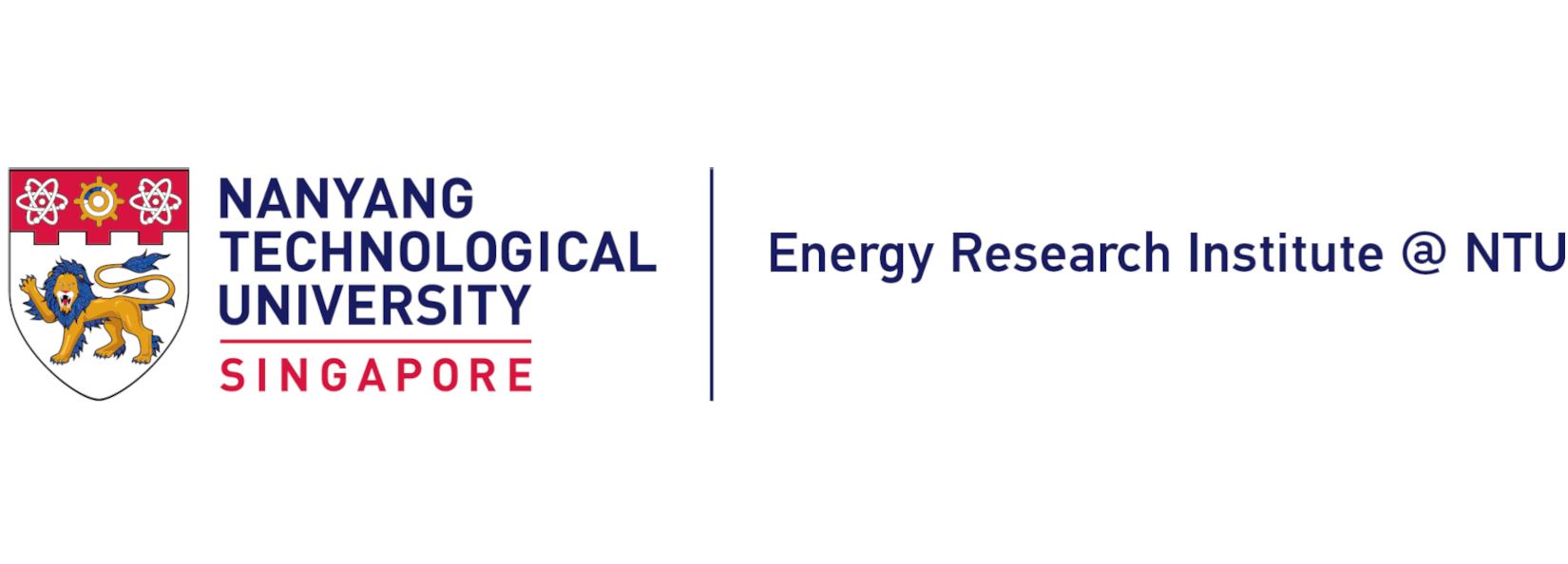What does it take for Asia to restructure itself into a green economy? Panellists at the Singapore Energy Summit discussed green growth opportunities and building regional interconnectivity in the region. Xiu Li reports
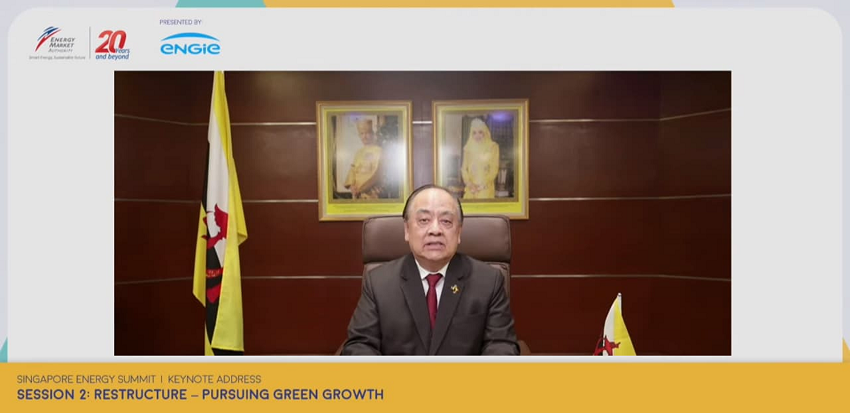
In Session 2 of the Singapore Energy Summit, industry experts and government leaders discussed how Asian economies can be restructured to accelerate green growth and job creation.
YB Dato Seri Setia Dr Awang Haji Mat Suny bin Haji Md Hussein, Minister of Energy, Brunei Darussalam, opened the session with a call for Asian countries to seize opportunities that would steer the region towards a more sustainable energy future.
He added that technological advancement and private sector investments alone are insufficient in driving the green economy forward. Government support and enabling policies are important to enhance public-private sector collaboration and shape consumer behaviour. He also shared several key initiatives undertaken by Brunei in 2021: Establishing energy efficiency standards, adopting Zero Routine Flaring (ZRF) to promote sustainable production, and ‘As Low As Reasonably Possible’ (ALARP) policies to reduce industrial emissions by 2035.
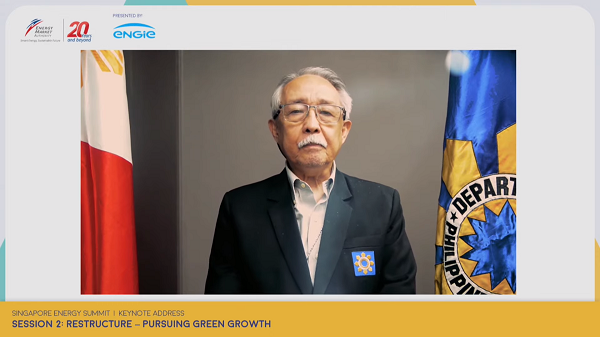
H.E. Alfonso G. Cusi, Secretary of Energy, Republic of the Philippines shared his belief in “3Gs” to guide the energy transition:
- Gauge – To consistently assess and adapt to ensure that policies in place are effective in driving green growth
- Growth – To ramp up capacity to meet increasing energy demand
- Gather – To develop and strategise efforts through bilateral and multilateral collaboration
Manuela V. Ferro, Regional Vice President, East Asia and Pacific (EAP), The World Bank Group, East Asia and Pacific, shared that many parts of the world remain reliant on coal today, with coal accounting for 40% of the power generated globally. She estimated that huge investments in clean energy and grid infrastructure will be required to support industrial activities and households.
Ms Ferro said: “We estimate that meeting the NDC targets of China, Indonesia, Philippines and Vietnam will require investments of $8 trillion for the power sector alone between 2020 and 2040. A more aggressive scenario aligned with the Paris agreement could increase the required investments to $10 trillion.”
With an estimated 4-to-5-fold increase (from current levels) in renewable energy capacity to be deployed annually over the next decades, Ms Ferro also highlighted that pricing and regulatory reforms are essential to avoid stranded assets and ensure economic growth. This is especially so in developing countries with growing energy demand—to ensure the availability and accessibility to a clean and affordable energy supply to support strong economic and social recovery from the COVID-19 pandemic.
Keys to Southeast Asia’s renewable shift
In a Special Interview, Francesco La Camera, Director-General, International Renewable Energy Agency (IRENA), shared how lowering the cost of renewables will be vital to accelerating the energy transition in Southeast Asia.
Mobilising investments to support clean energy infrastructure projects and having the right carbon pricing in place are other pillars underpinning a successful energy transition. Mr La Camera further noted that the process needs to be inclusive to benefit everyone through job creation, while addressing climate and developmental objectives.
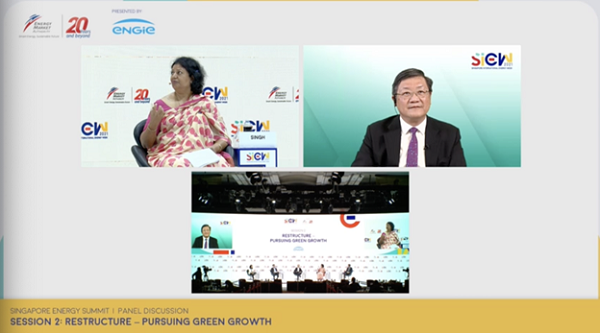
Moving towards a green energy system through policies and sustainable finance
Moderating a panel discussion, Gauri Singh, IRENA Deputy Director-General, commented that the public sector plays a key role in catalysing and managing the energy transition—although the private sector is likely to invest the bulk of the US$131 trillion estimated for the energy transition.
Thomas Baudlot, CEO Energy Solutions APAC and Country Head South East Asia, ENGIE South East Asia, further added that finding the right business models and partnerships to support green projects would be an important catalyst.
Professor Kang Seung-Jin, Chairman, Electricity Regulatory Commission (KOREC), echoed the view that renewable targets, job creation, innovation and the promotion of green industries are four integral approaches towards energy transition.
Kazuhisa Yano, Executive Chairman, Chief Asia Representative, Osaka Gas, emphasised that the government can play a leading role in supporting technology development, as well as in financing and establishing the right policies to reduce carbon emission.
On the role of the finance sector in the acceleration of green growth projects, Audra Low, Chief Executive Officer, Clifford Capital, mentioned there is demand for “greenium” and sustainability-linked loans today. An appropriate financing structure would be essential in influencing market behaviour and directing more investments towards green projects. An example cited by Ms Low was the exclusion of financing schemes for coal-fired power plants by international banks.
Eric Pang, Director, Electrical and Mechanical Services Department, Hong Kong SAR, China, highlighted the importance of energy efficiency measures; raising the minimum energy requirement to encourage innovation and adoption of new technologies; and enhancing collaboration between energy stakeholders. He also noted that public education is required to create awareness and seek public buy-in to shape energy consumption patterns.
Advancing energy transition through regional grid developments
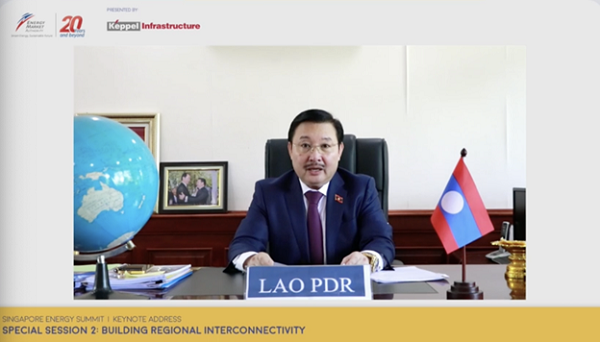
The Singapore Energy Summit featured a Special Session focusing on the latest developments driving regional grid interconnectivity.
H.E. Dr Sinava Souphanouvong, Deputy Minister for Energy and Mines, Laos People’s Democratic Republic, spoke about the potential of cross-border power trades. He said there is an increasing need for international collaboration to achieve the energy transition, such as through regional grids and research and development.
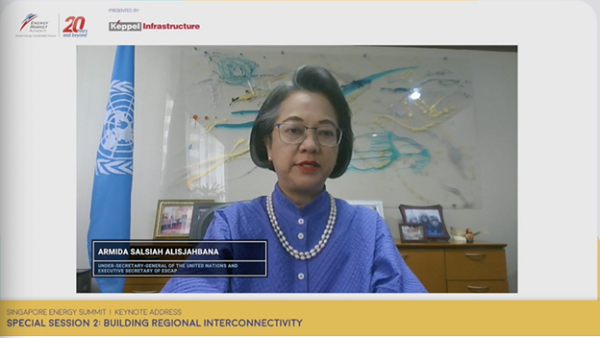
H.E. Armida Salsiah Alisjahbana, Under-Secretary General, United Nations Economic and Social Commission for Asia and the Pacific (UNESCAP), cited the Lao PDR-Thailand-Malaysia-Singapore Power Integration Project (LTMS-PIP) as a positive step towards multilateral power trading. She added: "Power system connectivity is a key tool for supporting the energy transition by enabling access to lower-cost resources, increased integration of renewable energy resources, and improved energy security.”
Mary Burce Warlick, Deputy Executive Director, International Energy Agency (IEA), further elaborated that a strong working relationship between governments and industry stakeholders are crucial in building interconnected functional systems.
Ms Warlick shared that the IEA is currently working with ASEAN countries in the areas of connection and power trade. She noted that regulatory policies must be in place, and potential issues such as physical disruption and cybersecurity attacks need to be addressed before regional interconnectivity could be realised.
Dannif Danusaputro, Chief Executive Officer, PT Pertamina Power Indonesia (PPI) highlighted that Indonesia would be looking into technological solutions to enable renewable energy export and increase the accessibility of clean energy to renewable-disadvantaged countries.
Cindy Lim, Chief Executive Officer, Keppel Infrastructure, shared that energy consumption patterns have changed today due to digitalisation and urbanisation. The energy transition would require demand management and a more responsive and resilient grid to support increased renewables integration. While we transit to a low carbon future, it is important to ensure that no one—and no stranded assets—are left behind.
Jimmy Khoo, Chief Executive Officer, SP PowerGrid, wrapped up the session by mentioning that concerted efforts between various stakeholders, especially between countries, are especially important in managing and solving climate change challenges and facilitating the energy transition.
Follow the key energy conversations taking shape in Asia on Twitter (@SIEW_sg).

















